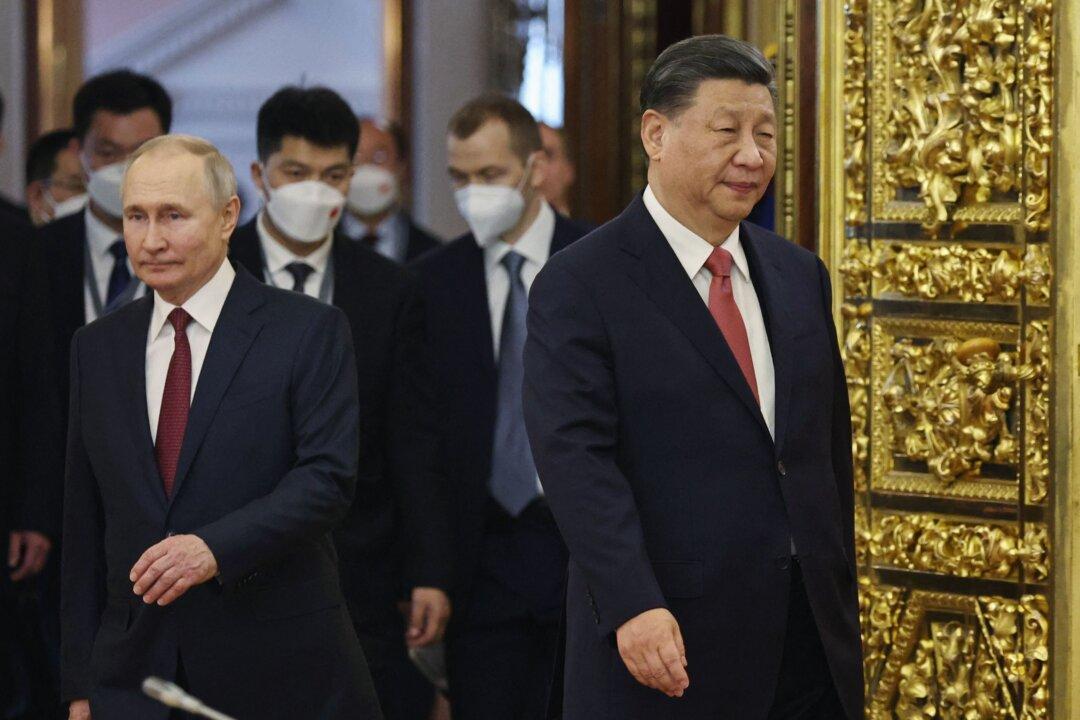Commentary
Vladimir Putin is desperate, which is good and bad. The bad—the really bad—is that cornered animals tend to lash out.
In Putin’s case, that could include the use of tactical nuclear weapons or a “stray” artillery shell hitting Europe’s largest nuclear power plant in Zaporizhzhia, Ukraine. Either act would escalate the war and might draw in the NATO alliance directly.
Apparently willing to risk it, Putin has taken two major steps in the past weeks. He deployed tactical nuclear weapons to his closest ally, Belarus. And he withdrew from the Treaty on Conventional Armed Forces in Europe, which limits Russian and NATO forces. Putin has already vowed to defend his Ukrainian conquests with nuclear weapons.
On May 26, Moscow hit the Karlivka dam with an S-300 missile.
On June 6, Russian forces apparently blew up the Kakhovka dam. Flooding the Dnipro River makes it more difficult for Ukrainian forces to retake their lost territory to its east.
These are indicators, possibly intended as such by Putin in the “game” of brinkmanship, to prove that he could resort to tactical nuclear weapons.
But like the blowing of the dam and threat against Zaporizhzhia, they only dig Putin deeper into the hole of his own making. He appears more and more the cornered aggressor and less the winning defender.
“Putin, essentially, is down to his nukes in Ukraine. And even he likely knows that they are not a viable or winning option,” wrote a former head of the U.S. European Command Intelligence Engagement Division.
As bad as the storm clouds over Ukraine are, there is a silver lining. An autocratic Russian empire is again cracking under its own weight. That would be a welcome geopolitical shift, especially if it put a chill on China’s invasion plans for Taiwan.





